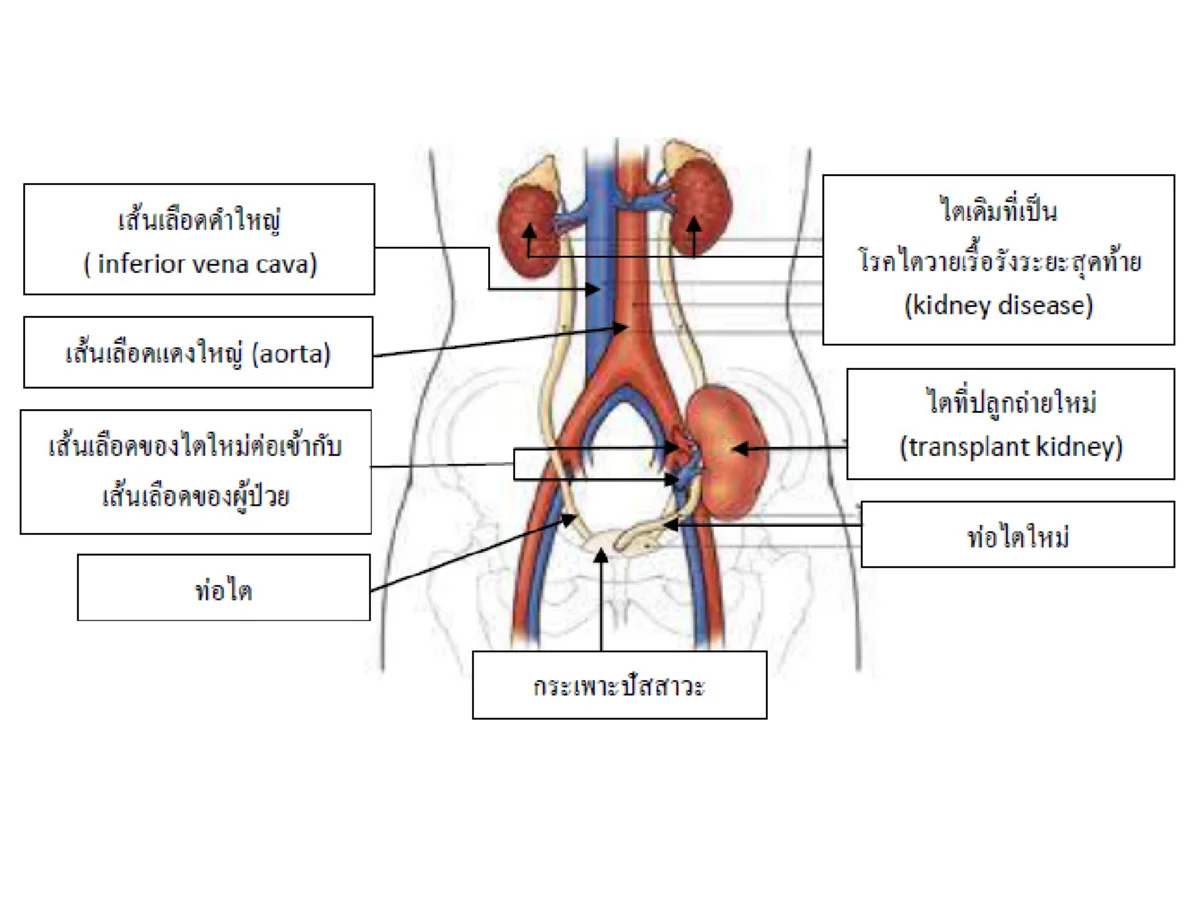The technique of kidney transplantation is the most crucial step in kidney transplant surgery. Mistakes in this procedure can lead to the failure of kidney transplantation without the possibility of correction. Given the complexity of the process, the surgical team must possess expertise, experience, and in-depth knowledge of each step of the surgery, especially in the preparation of the patient for kidney transplantation.
Preparing a patient for kidney transplant surgery
Patients with end-stage renal disease who are undergoing kidney transplant surgery are individuals at risk due to comorbid conditions such as hypertension and heart disease. If the preparation for surgery is not adequate, patients may experience anemia, protein malnutrition, or inadequate blood filtration, leading to coagulation abnormalities that can result in abnormal bleeding during and after surgery. Therefore, meticulous attention is given to vascular dissection, blood vessel suturing, and hemostasis during the surgical procedure. Additionally, anticoagulant medications are often stopped before surgery to minimize the risk of abnormal bleeding.
The first step in preparing a patient for kidney transplant surgery involves assessing the suitability of the patient for the procedure. This includes taking a medical history and conducting a physical examination, with a focus on conditions such as hypertension and heart disease. Treatment and correction of the body’s fluid and mineral balance are crucial, and immediate preoperative measures may include dialysis to address imbalances.
Physical examination of the transplant recipient goes beyond vital signs and requires a specific examination of the abdominal region, especially the lower abdomen where the kidney will be implanted. Additionally, a review of the patient’s medical history is essential, including examination of any existing surgical scars, such as those from previous childbirth.
A thorough examination of the femoral arteries on both sides is performed, with attention to potential issues such as stenosis, which may be present in patients with chronic kidney disease and long-standing hypertension. It is crucial to avoid implanting the kidney on a side with compromised femoral artery blood flow and choose the side with a clear and steady pulse.
Once the date for the kidney transplant surgery is determined, coordination and communication with the surgical team are essential. This involves informing various team members, including physicians, operating room nurses, and surgeons. The transplant coordinator, who assists the nephrologist in coordinating the transplant process, plays a crucial role in facilitating communication and ensuring that the selected recipient is a suitable match with minimal HLA mismatch and a negative lymphocyte cross-match.
The steps in preparing a patient for kidney transplant surgery are as follows:
- The patient should abstain from food and water after midnight if the surgery is scheduled for the morning. In emergency transplant situations, such as receiving a kidney from a deceased donor, the patient should be informed to fast for at least 4-6 hours before the procedure.
- If the patient is receiving anticoagulant medications to prevent blood clotting, these medications need to be stopped. In the case of a living donor kidney transplant, the discontinuation of anticoagulants is necessary to minimize the risk of bleeding during the procedure. For kidneys obtained from deceased donors in emergency situations, immediate cessation of anticoagulant medications is required, and blood products (fresh frozen plasma) may be prepared in anticipation of potential bleeding.
- The patient should undergo dialysis within 24 hours before the kidney transplant surgery. The decision to perform dialysis is based on the patient’s individual medical condition and suitability.
- The patient’s fluid volume and electrolyte levels should be within normal ranges. Sodium levels, especially, need to be carefully monitored.
- Blood products, such as fresh frozen plasma, may be prepared in advance, depending on the patient’s condition and the need for potential transfusions during surgery.
- A urinary catheter is inserted to facilitate easy urine flow without obstruction from blood clots or surgical interventions.
- The patient is given medications before the surgery, including antibiotics to prevent infections during the transplant. These medications may be administered via intravenous (IV) or through the urinary bladder.
Complications after Kidney Transplant Surgery
Complications following kidney transplant surgery can be categorized into the following types:
- Surgical Complications: refers to complications that arise directly from surgery or conditions that require correction through surgical procedures. This category can be further divided into:
- Vascular Complications: These may include blood vessel blockages or bleeding from surgically manipulated blood vessels.
- Lymphatic Complications: These involve issues related to the lymphatic system, such as lymphatic congestion in the surgical area or infections.
- Urological Complications: These complications may arise from the renal tubes, such as leakage or constriction after surgery.
- Infectious Complications: Infections are common post-surgery complications and may occur in the surgical site or affect the transplanted kidney.
- Cardiovascular Complications: Complications related to the heart and blood vessels can occur, potentially impacting the overall cardiovascular system.
- Other Complications: This category encompasses changes in the body’s immune response, as well as various side effects of medications taken.
These complications may necessitate corrective surgical procedures or other interventions. It’s essential for medical professionals, including urologists and surgeons, to address these issues promptly.






